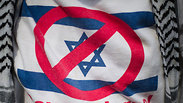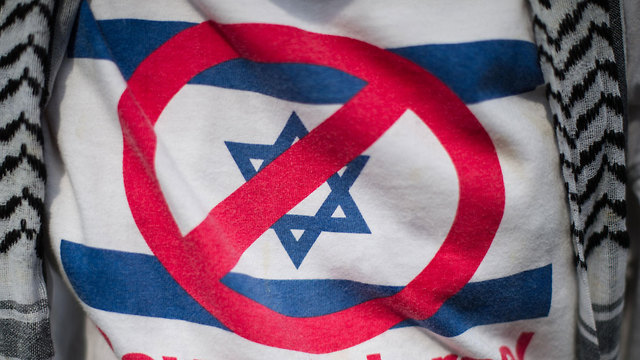
Israel shouldn't rest on the laurels of Germany's BDS decision
Opinion: German parliament's decision to designate the movement, which promotes boycotts against Israel, as anti-Semitic is excellent news; however, it will remain purely symbolic as long as Germany continues funding pro-Palestinian groups with BDS-like policies
The decision of lawmakers in the Bundestag, including some from the German far-left Die Linke party, decided a Working Definition of Antisemitism - formulated during 2003–04 - is the one should be adopted by the state. The non-legally binding definition, which among other things equates some criticism of Israel to anti-Semitism, was adopted by a plenary meeting of the 31 countries in the International Holocaust Remembrance Alliance back in 2016.
The German parliament’s motion, however, doesn’t simply adopt the definition, but also states that a BDS campaign uses anti-Semitic tactics to fulfill its political goals. For instance, calling for Israeli products to be labeled with "Don't Buy" stickers was reminiscent of the Nazi-era boycott of Jewish businesses, known in German as "Judenboykott", which used slogans such as: "Don't buy from Jews."
One of the main problems in the fight against the BDS lies in the deceptive definition of its goal to "pressure Israel into ending the occupation." Although some BDS activist do genuinely believe the organization uses legitimate and non-violent ways to apply pressure on Israel - in order to achieve peace between Palestinians and the State of Israel - the movement's true goal isn't to end the occupation. The BDS opposes the very existence of Israel, and the movement’s leaders admit that. The fact that the Bundestag had the courage to call the movement by its true name (and for such left-leaning publications like the New York Times and the Guardian to report on it) is excellent news for Israel.
But, this is no time to rest on our laurels. The BDS movement - which has many branches and organizations operating in its name in the Western world - continues to gain momentum in the two most important spheres: media and academia.
Some of the most prominent figures who participate in whitewashing of the movement's true nature are, in fact, Israelis. Before the German vote, some 60 Israeli researchers and professors signed a petition calling on the German political parties not to equate the movement’s activity with anti-Semitism. Although in this particular instance they failed, the propaganda of this nature has been known to bear fruit.
The Bundestag's decision, however, is non-binding and Germany still funds plenty of pro-Palestinian groups that work for (or inspired by) the BDS. In order to inflict a severe blow on the movement, it's important to stop funding the organizations that make it their mission to vilify the State of Israel in the eyes of the world. If the funding continues, the German decision will become a merely symbolic one.



















